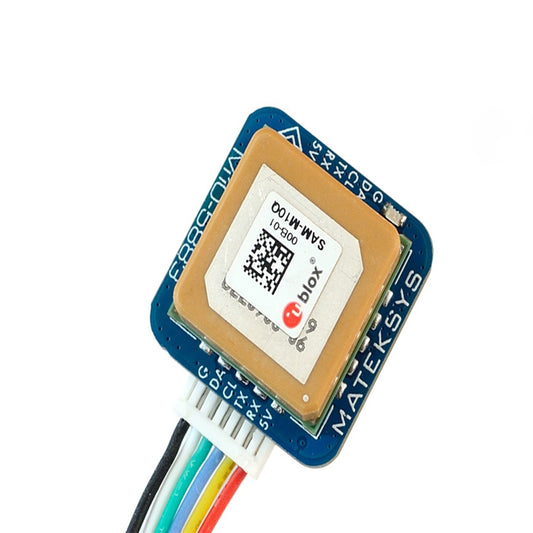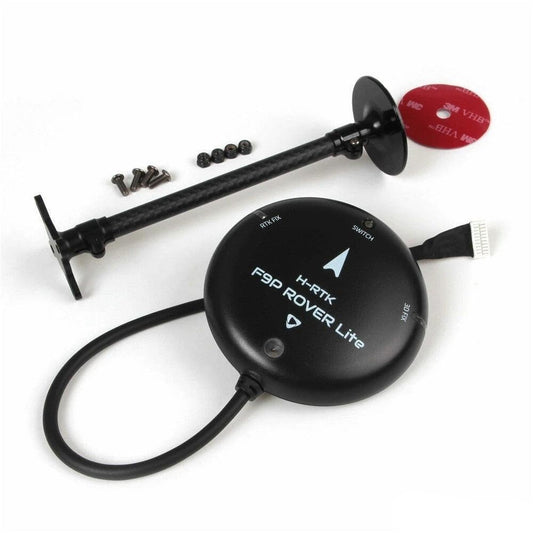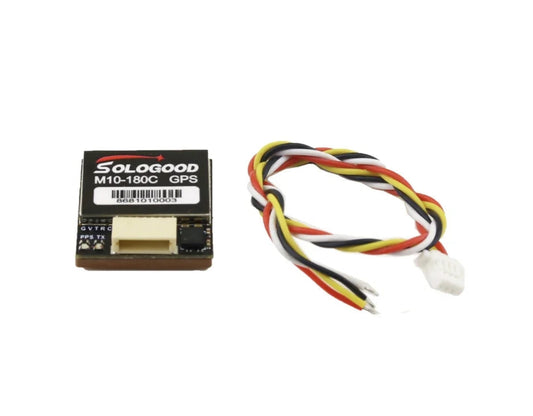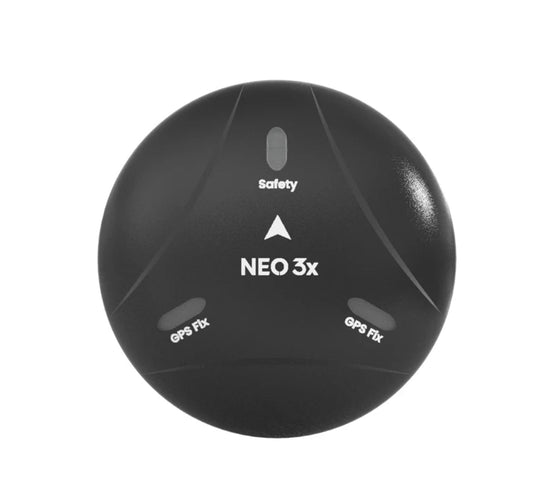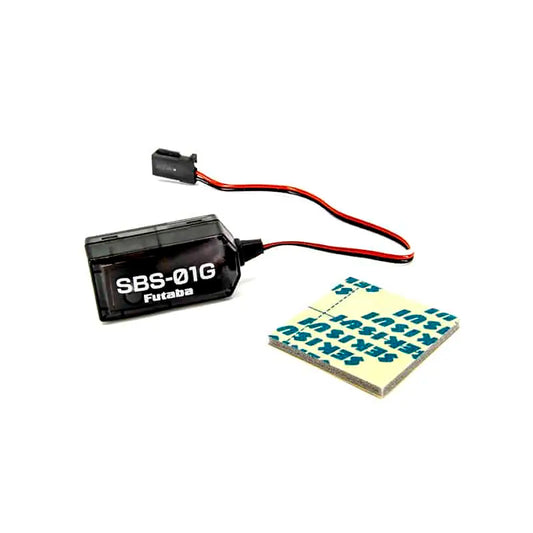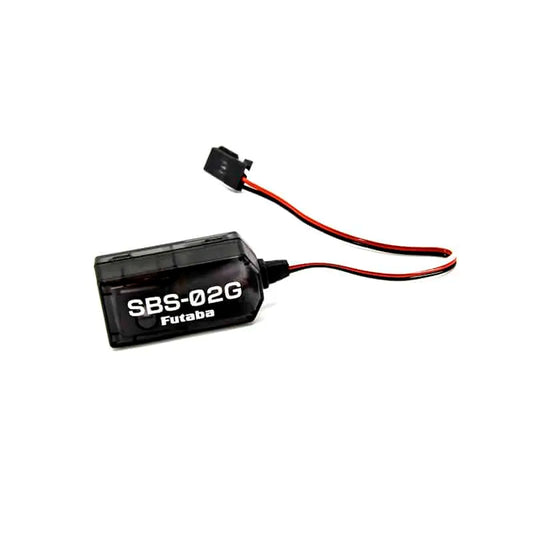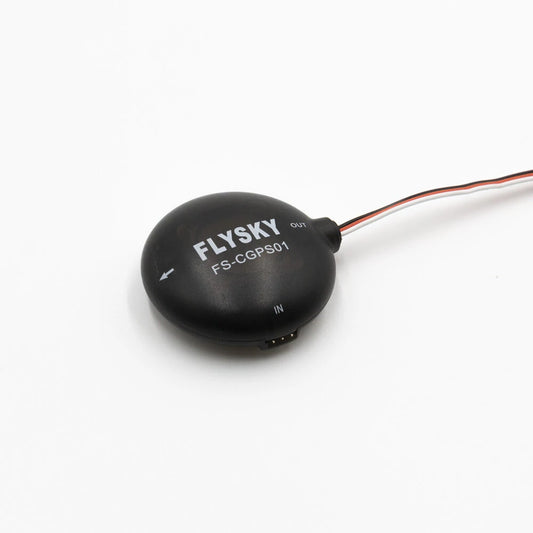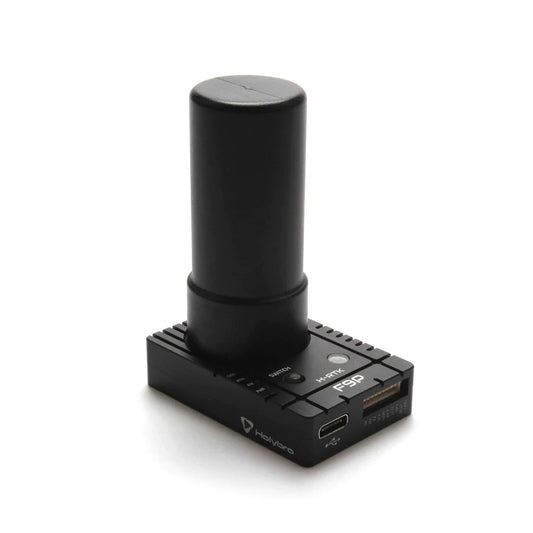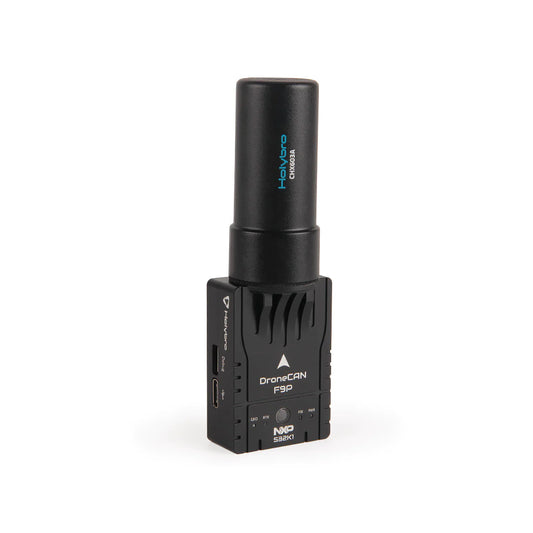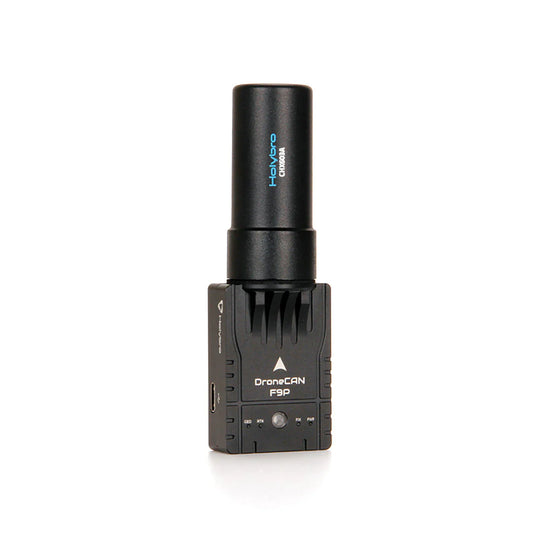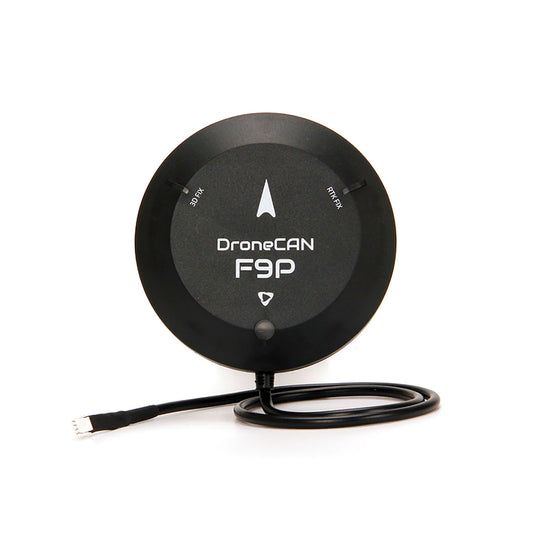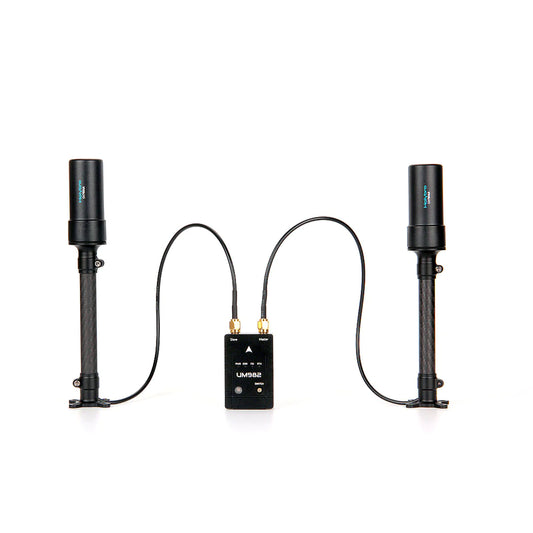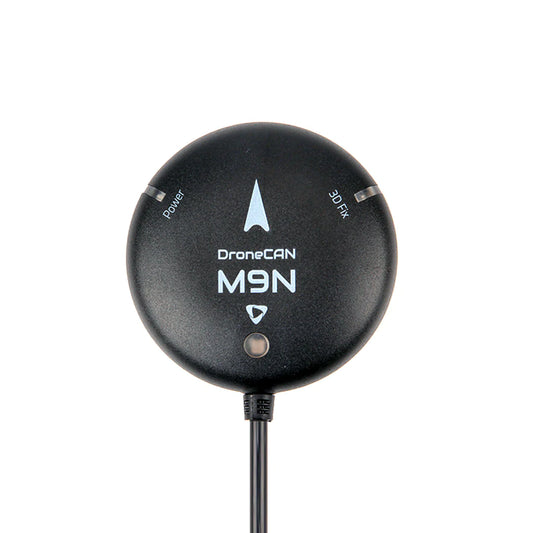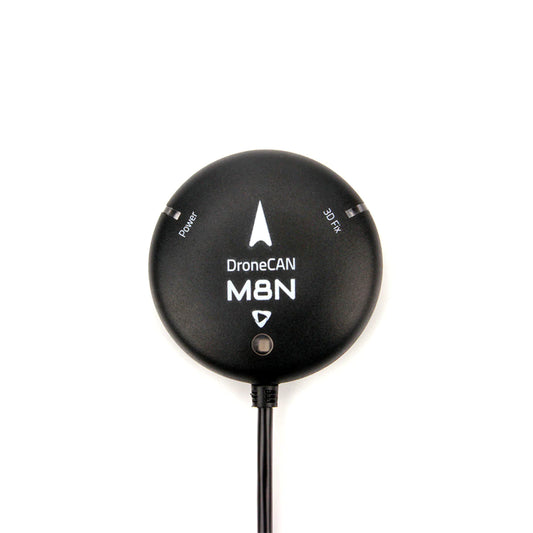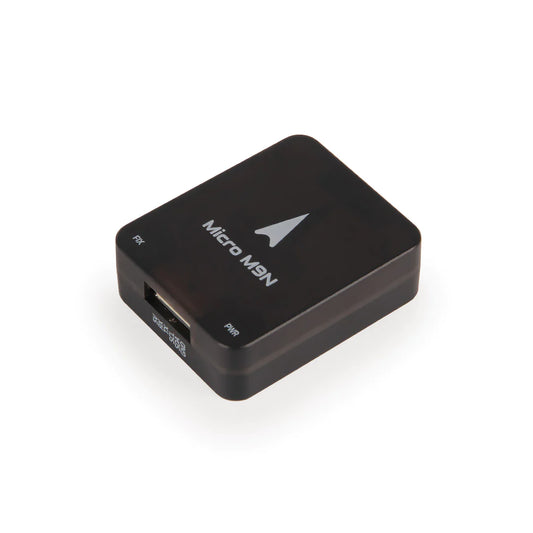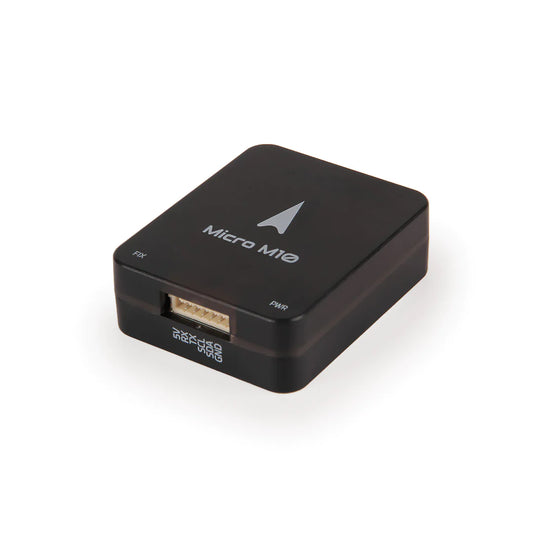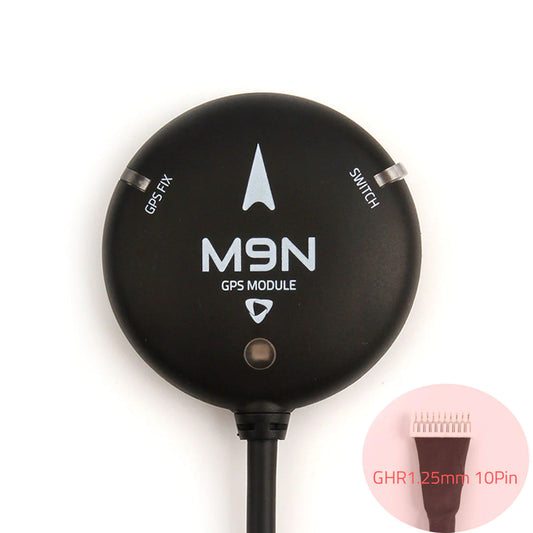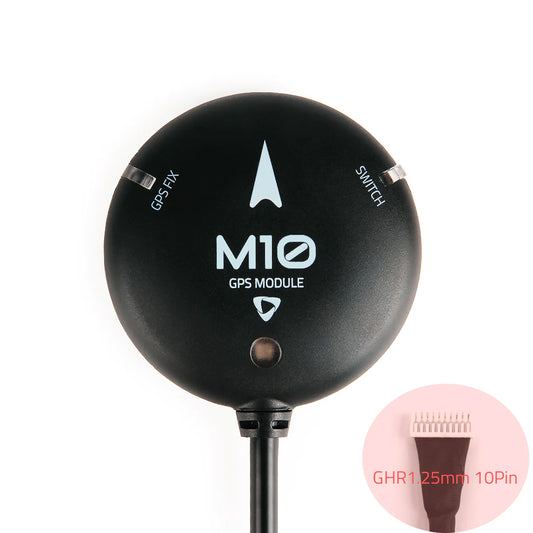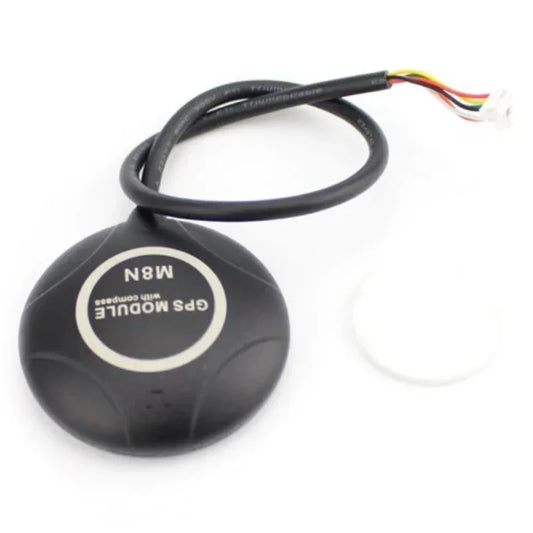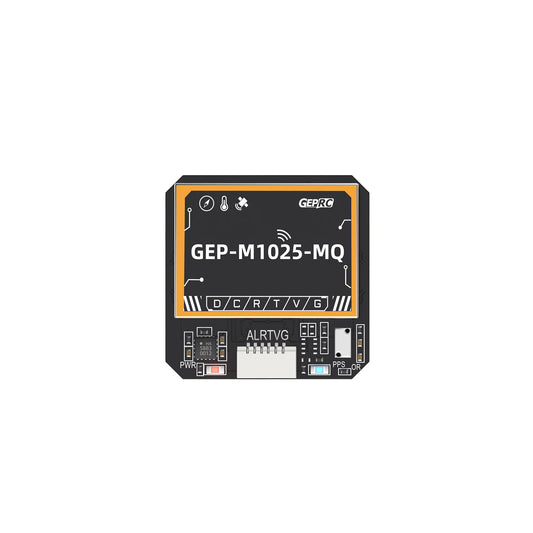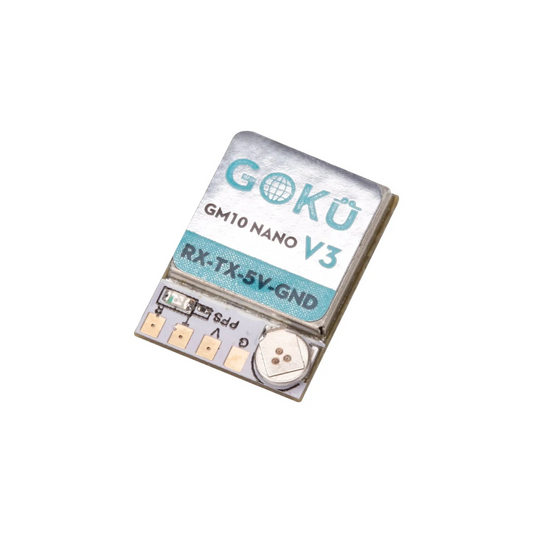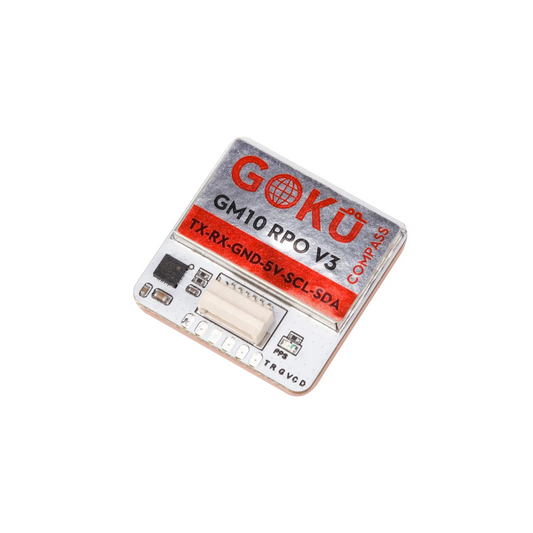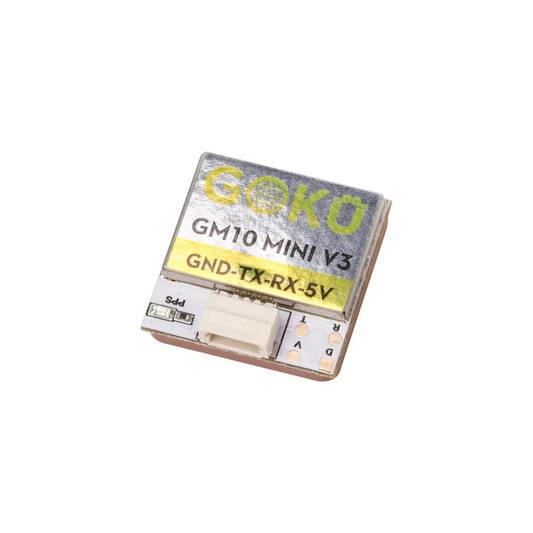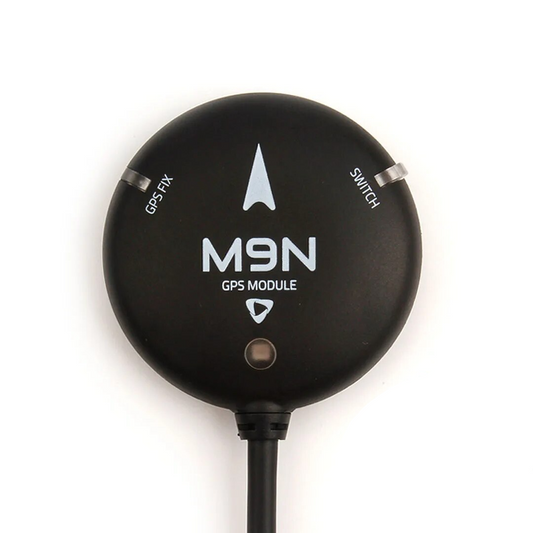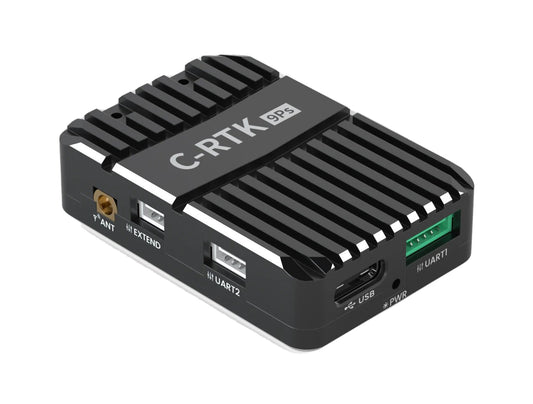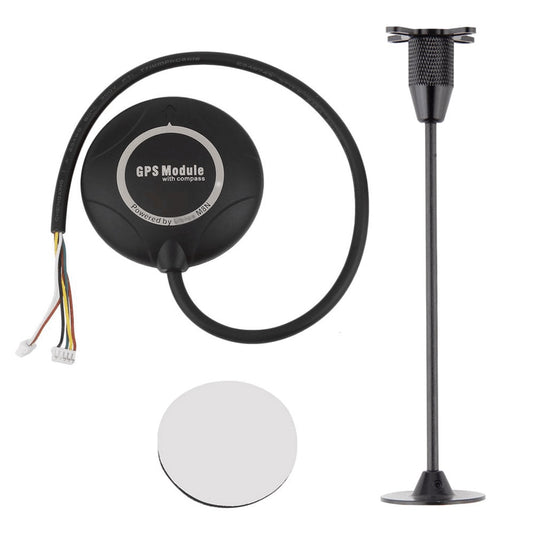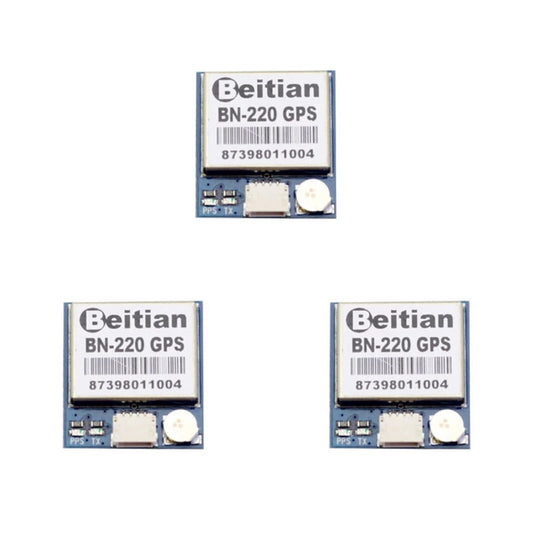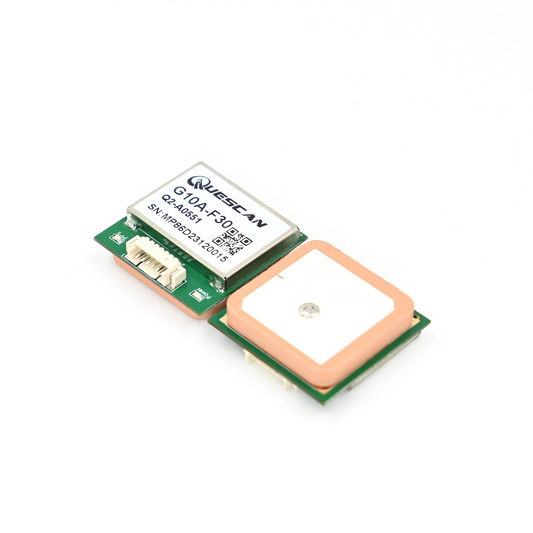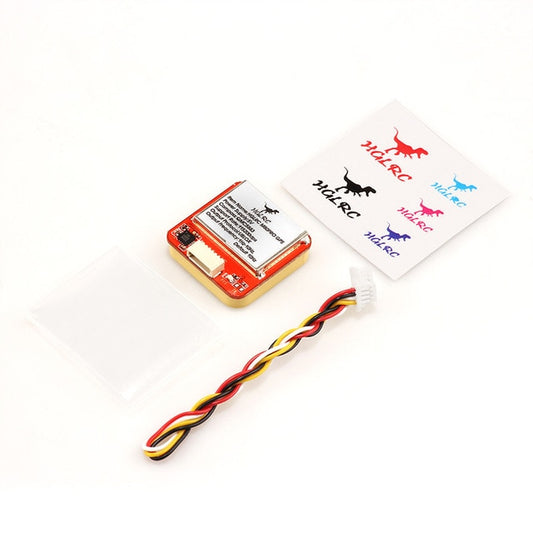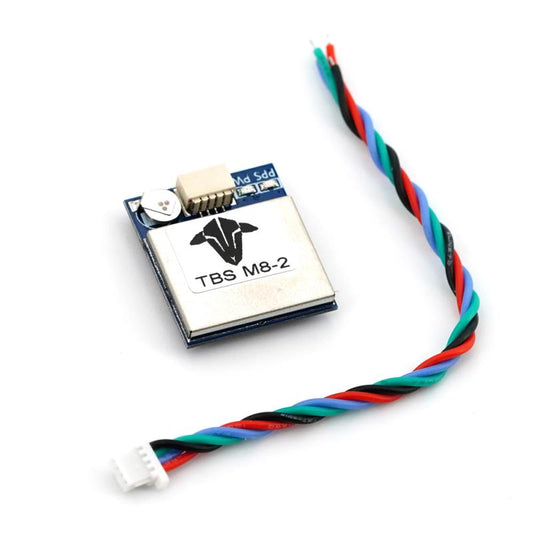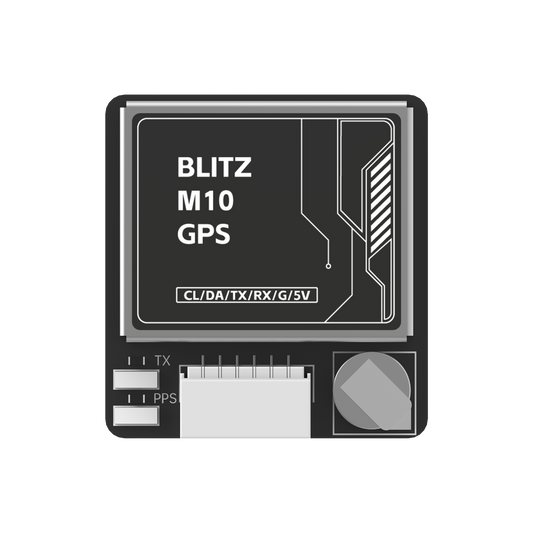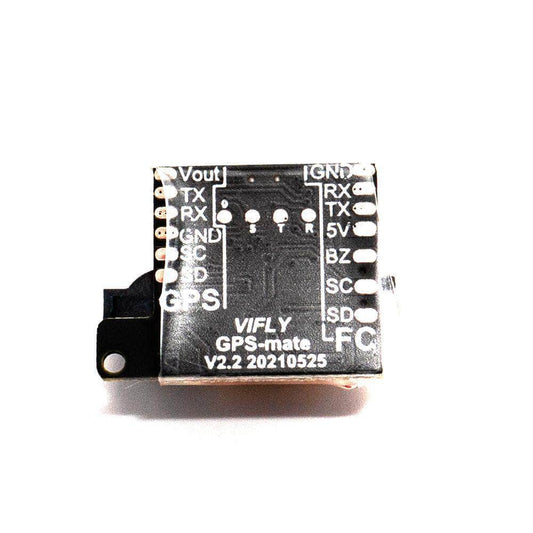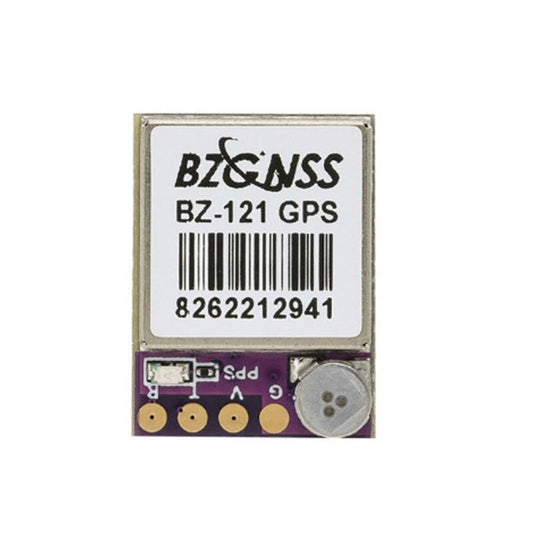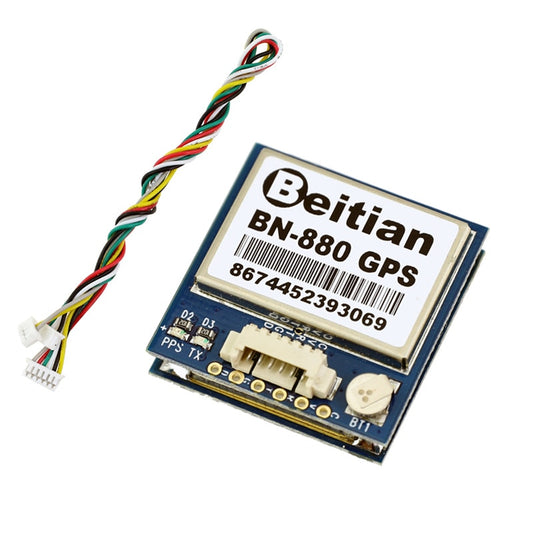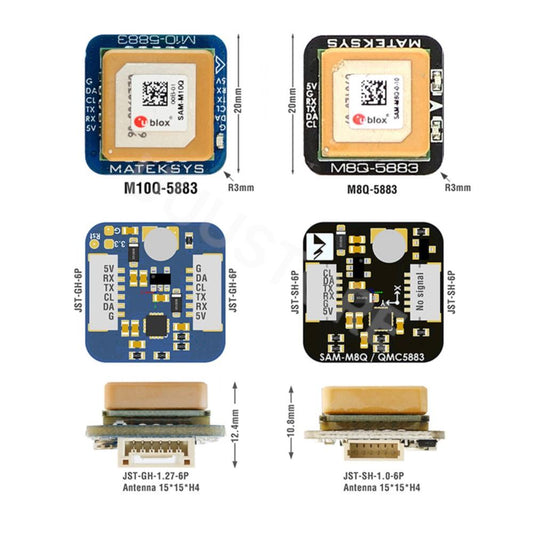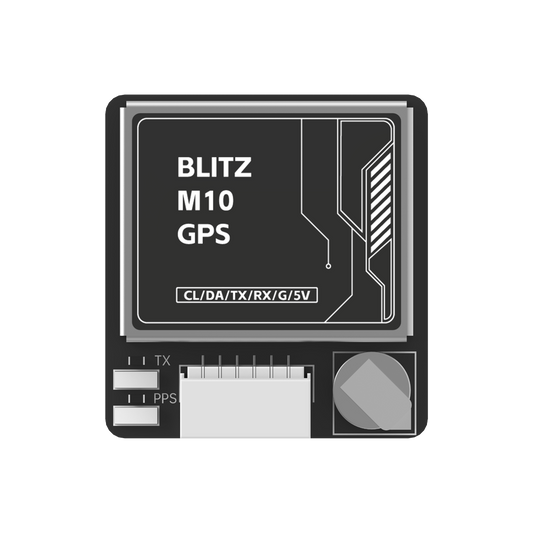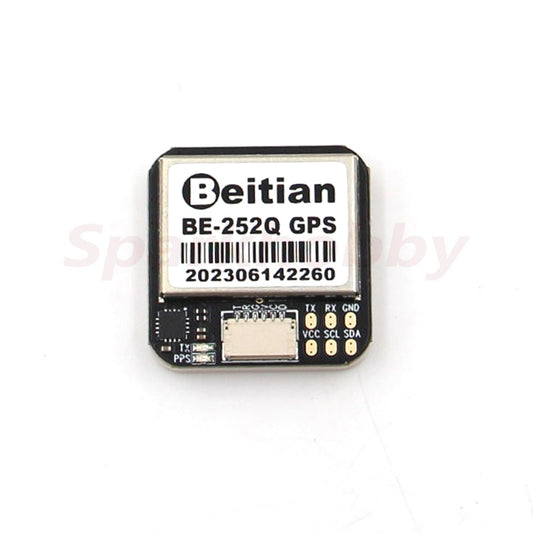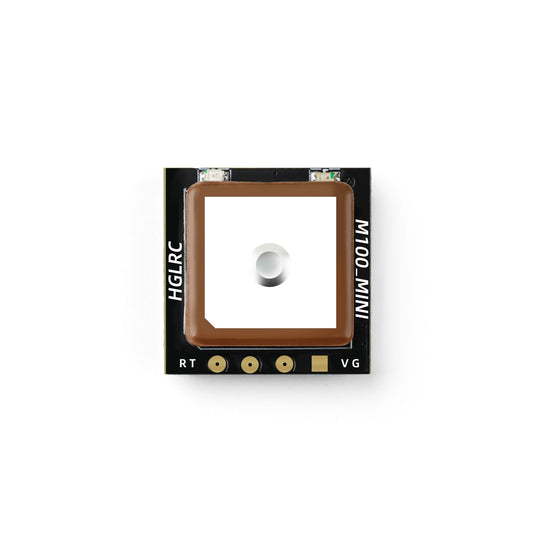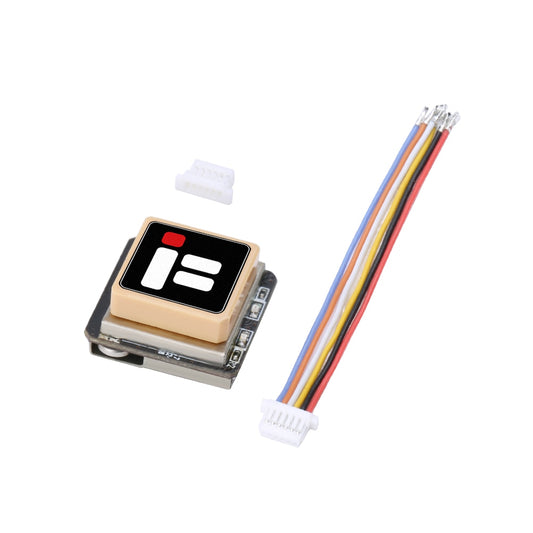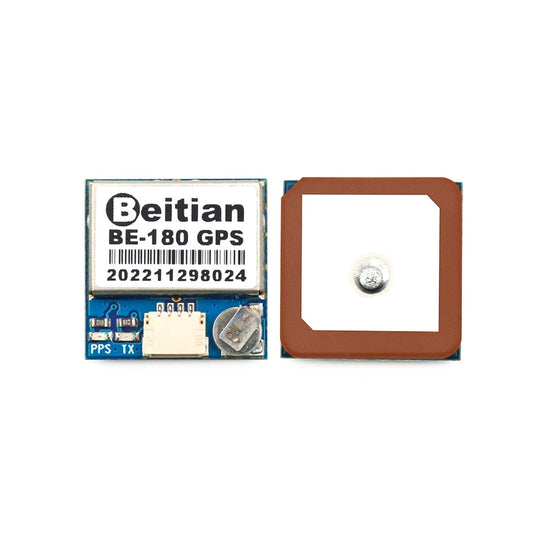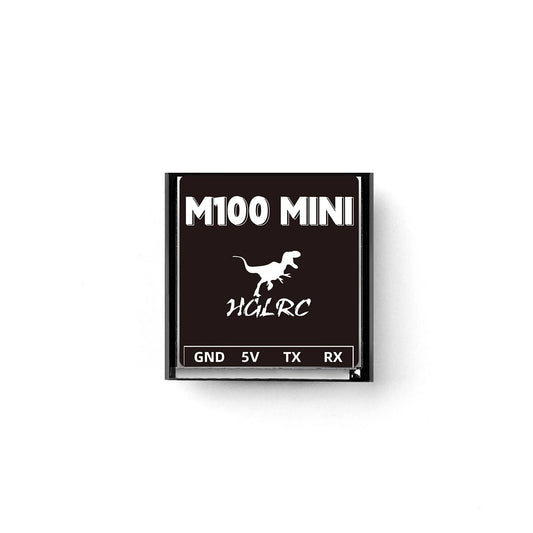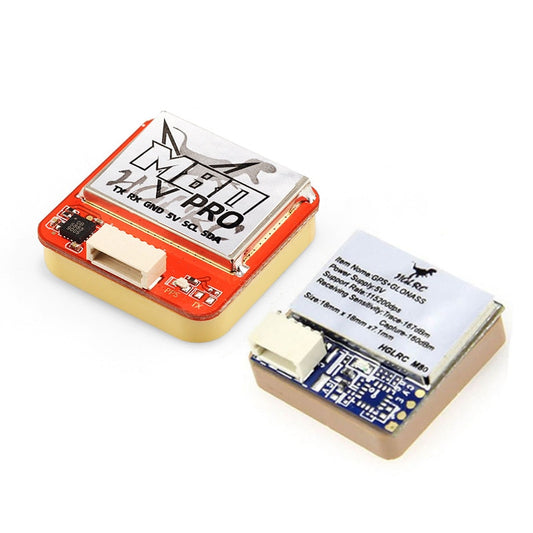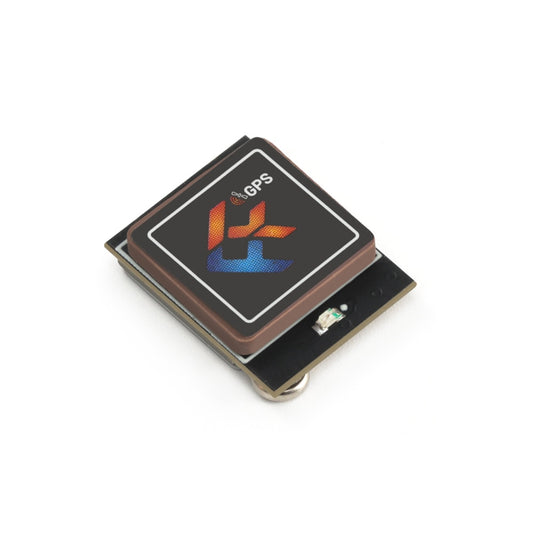-
Matek Systems GNSS M10Q-5883 U-Blox M10 GPS - with Compass QMC5883L Module Digital AirSpeed 4~9V For FPV Racing Drone
Regular price $44.84 USDRegular priceUnit price per$67.26 USDSale price $44.84 USDSale -
CUAV RTK 9Ps Centimeter-level High And Fast Percision Precise Positioning Multi-Star Multi-Frequency Antenna GNSS Module
Regular price From $667.85 USDRegular priceUnit price per$934.99 USDSale price From $667.85 USDSale -
Holybro H-RTK F9P Rover Lite GPS Module - GNSS GLONASS Galileo BeiDou for Pixhawk Flight Controller long range system
Regular price $524.82 USDRegular priceUnit price per$734.74 USDSale price $524.82 USDSale -
SoloGood M10 GPS - M10-180C M10-180 180 GPS with Compass Transcend Beitian GPS UBLOX For RC Racing FPV Drone Airplane
Regular price From $15.13 USDRegular priceUnit price per$21.18 USDSale price From $15.13 USDSale -
CUAV New NEO 3X GPS - Ublox M9N DroneCAN CAN Protocol GNSS
Regular price $166.20 USDRegular priceUnit price per$199.43 USDSale price $166.20 USDSale -
Futaba SBS-01G GPS Sensor (v.1.0)
Regular price $149.00 USDRegular priceUnit price per -
Futaba SBS-02G GPS Sensor (v.2.0)
Regular price $210.00 USDRegular priceUnit price per -
FlySky FS-CGPS01 GPS Module - 72CH i.bus Port High Sensitivity Short Acquisition Time Strong Antiinterference Ability Support GPS Galileo Beidou Satellite System
Regular price $99.00 USDRegular priceUnit price per -
Holybro H-RTK F9P GNSS Series - H-RTK F9P Rover Lite / H-RTK F9P Helical / H-RTK F9P Base High Precision GPS Module
Regular price From $429.00 USDRegular priceUnit price per -
Holybro DroneCAN H-RTK F9P Helical (Based on NXP S32K1) - High-precision GPS GNSS Position With F9P BMM150 Compass NXP S32K14 Processor
Regular price $439.00 USDRegular priceUnit price per -
Holybro DroneCAN H-RTK F9P Helical - High Precision GPS GNSS Position System Support DroneCAN Protocol
Regular price $449.00 USDRegular priceUnit price per -
Holybro DroneCAN H-RTK F9P Rover - High Precision GPS GNSS Position System With u-box F9P Module BMM150 Compass
Regular price $438.00 USDRegular priceUnit price per -
Holybro H-RTK Unicore UM982 (Dual Antenna) RTK GPS Module
Regular price $359.00 USDRegular priceUnit price per -
Holybro H-RTK F9P Ultralight - High Precision GPS RTK GNSS Module With U-blox ZED-F9P IST8310 Compass
Regular price $379.00 USDRegular priceUnit price per -
Holybro DroneCAN M9N GPS Module - STM32G4 Processor BMM150 Compass UP to 4 GNSS Ublox NEO M9N Receiver Support DroneCAN Protocol
Regular price $123.00 USDRegular priceUnit price per -
Holybro DroneCAN M8N GPS Module - STM32G4 Processor BMM150 Compass 3GNSS Support DroneCAN Protocol
Regular price $98.00 USDRegular priceUnit price per -
Holybro Micro M9N GPS Module
Regular price $63.00 USDRegular priceUnit price per -
Holybro Micro M10 GPS Module
Regular price $37.00 USDRegular priceUnit price per -
Holybro M9N GPS Module
Regular price $88.00 USDRegular priceUnit price per -
Holybro M10 GPS Module
Regular price $55.00 USDRegular priceUnit price per -
Holybro Black M8N GPS - Pixhawk PX4 2.4.8 Flight Controller 32 Bit ARM PX4FMU PX4IO Combo for RC Drone FPV Racing
Regular price $70.58 USDRegular priceUnit price per$91.76 USDSale price $70.58 USDSale -
GEPRC GEP-M1025 Series - GPS Module M10050 Chip Multi Satellite Magnetometer Barometer Farad Capacitor Accurate for FPV Drone
Regular price From $24.51 USDRegular priceUnit price per$31.86 USDSale price From $24.51 USDSale -
FLYWOO GOKU GM10 Nano V3 GPS
Regular price $25.33 USDRegular priceUnit price per$43.05 USDSale price $25.33 USDSale -
FLYWOO GOKU GM10 Pro V3 GPS w/compass
Regular price $26.48 USDRegular priceUnit price per$45.02 USDSale price $26.48 USDSale -
FLYWOO GOKU GM10 Mini V3 GPS
Regular price $24.17 USDRegular priceUnit price per$41.09 USDSale price $24.17 USDSale -
Holybro M9N GPS Module - with IST8310 Compass LED Indicator for Pixhawk / PX4 / PIX32 Flight Controller
Regular price $96.22 USDRegular priceUnit price per$144.33 USDSale price $96.22 USDSale -
CUAV Dual RTK 9Ps For Yaw GPS - Centimeter-level High Percision Precise Positioning Multi-Star Multi-Frequency GNSS Module
Regular price $1,552.31 USDRegular priceUnit price per$2,173.23 USDSale price $1,552.31 USDSale -
1PCS High Precision GPS - M8N 8M 8N / 6M Built in Compass w/ Stand Holder for APM 2.6 2.8 Pixhawk 2.4.6 2.4.8
Regular price From $10.60 USDRegular priceUnit price per$21.20 USDSale price From $10.60 USDSale -
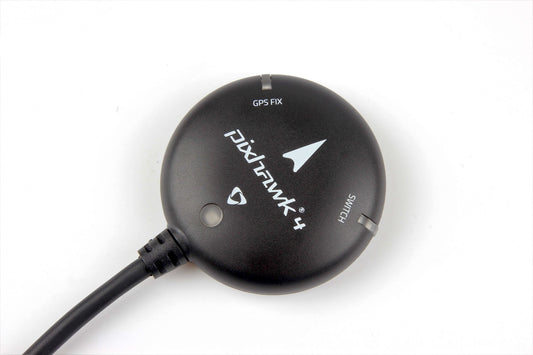 Sale
SalePixhawk 4 GPS Module
Regular price $120.01 USDRegular priceUnit price per$180.01 USDSale price $120.01 USDSale -
HGLRC M80 PRO M80PRO GPS - QMC5883 Compass With GLONASS GLILEO QZSS SBAS BDS Receiving Format 5V Power For FPV RC Racing Drone
Regular price $26.55 USDRegular priceUnit price per$45.14 USDSale price $26.55 USDSale -
5.3g BEITIAN BN-220 BN220 SuperTiny GLONASS GPS Module - 22X20X6mm for RC Airplane FPV Racing Long Range LR4 LR5 LR7 Drones
Regular price From $28.98 USDRegular priceUnit price per$49.26 USDSale price From $28.98 USDSale -
QUESCAN UBX M10050 M10 GNSS Module - Boat FPV Drone M10 GPS Galileo BeiDou GLONASS Module,Starline GPS,NMEA0183,3.3V-5V,G10A-F30
Regular price $19.62 USDRegular priceUnit price per$39.24 USDSale price $19.62 USDSale -
HGLRC M80 PRO M80PRO GPS GLONASS GALILEO - QZSS SBAS BDS QMC5883 Compass 5V Power 25mm x 25mm x 8.3mm For FPV Drones Fixed-wing
Regular price From $29.12 USDRegular priceUnit price per$49.50 USDSale price From $29.12 USDSale -
TBS M8-2 GPS GLONASS ublox UBX-M8030 FPV positioning chip
Regular price $28.51 USDRegular priceUnit price per$48.47 USDSale price $28.51 USDSale -
iFlight BLITZ M10 GPS for FPV parts
Regular price $50.54 USDRegular priceUnit price per$75.82 USDSale price $50.54 USDSale -
VIFLY GPS-Mate Exclusive Power Source for Drone GPS - to Prevent VTX Over-Heating with Lost Drone Alarm Buzzer for RC FPV Drone
Regular price From $22.82 USDRegular priceUnit price per$38.79 USDSale price From $22.82 USDSale -
BZGNSS BZ-121 BZ-181 BZ-251 Dual Protocol GPS Positioning Module - Suitable FPV out of Control Rescue Fixed-wing Crossing Drones
Regular price From $23.13 USDRegular priceUnit price per$39.32 USDSale price From $23.13 USDSale -
Beitian BN-880 BN880 Flight Controller GPS Module - Dual Module Compass With Cable for Airplane Multirotor FPV Racing Drone
Regular price From $29.77 USDRegular priceUnit price per$50.61 USDSale price From $29.77 USDSale -
20X20mm MATEK M10Q-5883 GNSS GPS Module - Magnetic Compass QMC5883L M8Q Update f/ RC Model Airplane FPV Freestyle Long Range Drone
Regular price From $47.72 USDRegular priceUnit price per$71.58 USDSale price From $47.72 USDSale -
iFlight BLITZ M10 GPS - for FPV parts and Compass module QMC5883L integrated for FPV drone
Regular price $49.80 USDRegular priceUnit price per$74.71 USDSale price $49.80 USDSale -
Beitian BE-122 BE-182 BE-252Q GPS Module - M10050 Chip GNSS GMOUSE With compass For RC Long Range FPV Fixed-wing Airplane Drones
Regular price From $16.20 USDRegular priceUnit price per$32.40 USDSale price From $16.20 USDSale -
HGLRC M100 MINI GPS 10th Generation UBLOX Chip - three-mode positioning 3.3V-5V For FPV Racing Drone For RC FPV Freestyle Drone
Regular price $24.03 USDRegular priceUnit price per$40.86 USDSale price $24.03 USDSale -
iFlight M8Q-5883-GPS GPS Module V2 - UBX-M8030-KT For RC DIY FPV Racing Drone Parts
Regular price $47.82 USDRegular priceUnit price per$71.72 USDSale price $47.82 USDSale -
BEITIAN BE-180 BE180 SuperTiny 4.9g GLONASS GPS Module - 18X18X6mm for RC Airplane FPV Racing Long Range LR4 LR5 LR7 Drones
Regular price $21.15 USDRegular priceUnit price per$35.96 USDSale price $21.15 USDSale -
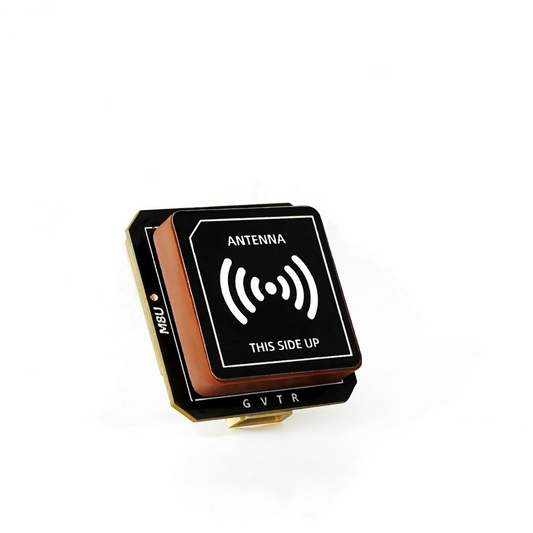
GEPRC GEP-M8U GPS Module - Integrate BDS GLONASS Module SH1.0-4Pin and Farad Capacitor for FPV Drone
Regular price $25.35 USDRegular priceUnit price per$43.09 USDSale price $25.35 USDSold out -
HGLRC M100 MINI GPS /M80 PRO /M80 GPS - 10th Generation UBLOX Chip three-mode positioning 3.3V-5V For FPV RacingFreestyle Drone
Regular price From $21.23 USDRegular priceUnit price per$36.09 USDSale price From $21.23 USDSale -
1/2PCS HGLRC M80 PRO /M80PRO GPS GLONASS GALILEO - QZSS SBAS BDS QMC5883 Compass 5V Power 25mm x 25mm x 8.3mm For FPV Drones
Regular price From $23.03 USDRegular priceUnit price per$39.16 USDSale price From $23.03 USDSale -
FlyFishRC M10 Mini GPS Module - 10th Generation Built-in Ceramic Antenna For FPV Freestyle Long Range Drone Parts
Regular price From $23.73 USDRegular priceUnit price per$40.34 USDSale price From $23.73 USDSale
